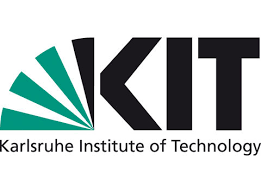Karlsruhe Institute of Technology: Mark Wise receives Julius Wess Prize 2021
The Julius Wess Prize 2021 of the KIT Center for Elementary Particle and Astroparticle Physics (KCETA) of the Karlsruhe Institute of Technology (KIT) goes to Professor Mark Wise from the California Institute of Technology, or Caltech for short. He received the Julius Wess Prize in recognition of his outstanding and groundbreaking scientific achievements in the field of theoretical particle physics, in particular the development of modern effective field theories for flavor physics, and his high international reputation. Representatives of the media are cordially invited to the award ceremony on November 5, 2021 from 4:00 p.m. in the Audimax on the south campus of KIT.
Due to the hygiene measures in force, it is essential to register for the lecture by 4 November by e-mail to presse ∂kit edu .
For the safety of all those present, we ask you to bring a 3G certificate (recovered, vaccinated, tested) with you.
Mark Wise is Professor of High Energy Physics at Caltech. He made groundbreaking contributions in the field of theoretical particle physics. Several of his discoveries have since been included in the textbooks, such as the development of the weakly interacting part of the so-called Hamilton operator in 1979, which is the basis for the entire theory of flavor physics. In addition, he developed a theory of heavy quarks that describes the behavior of the building blocks of atomic nuclei.
The so-called flavor is a quantum number that – like the charge or the angular momentum – is used to describe the state of elementary particles. It is important in processes of weak and strong interaction. With the strong interaction, which is decisive for the cohesion of atomic nuclei, the flavor is retained.
Program the language of
the event is English
4:00 p.m. Welcome
Professor Thomas Hirth, Vice President for Innovation and International Affairs of KIT
4:10 p.m. Introduction to the KIT Center for Elementary Particle and Astroparticle Physics (KCETA)
Professor Anke-Susanne Müller, KIT, Scientific Spokesperson for KCETA
4:20 pm Guest lecture
Professor Martin Beneke, Technical University of Munich
17:00 o’clock coffe break
5:15 pm Laudation from
Professor Ulrich Nierste, Institute for Theoretical Particle Physics at KIT
5:45 p.m. Award ceremony for
Professor Thomas Hirth, Vice President for Innovation and International Affairs of KIT
6:00 p.m. Approximate symmetries of the Standard Model for elementary particle interactions and their implications for the hadronic spectrum, proton decay and cosmology
Professor Mark Wise, California Institute of Technology, USA
7:00 p.m. reception
The artistic program item will include a contribution by the SAM • ComputerStudio and the IMWI Institute for Music Informatics and Musicology at the Karlsruhe University of Music for the Karlsruhe Castle Light Theater: The video projection “Nucleus” features the composition of the same name by the Karlsruhe composer Wolfgang Focus on Rihm. The performance of the work by students of the University of Music Karlsruhe creates images that develop in interaction with the music as “visual music”.
Mark Wise – about the person:
Mark Wise, born in 1953, studied at the University of Toronto and Stanford University, USA. Since 1992 he has been the John A. McCone Professor of High Energy Physics at the California Institute of Technology (Caltech). He is a Fellow of the American Physical Society, a member of the American Academy of Arts and Sciences, and the National Academy of Sciences. Mark Wise has published more than 240 publications, cited well over 30,000 times, including seven publications, each cited over 1,000 times.
Julius Wess Prize
The Julius Wess Prize commemorates Professor Julius Wess, who during his twenty years at what was then the University of Karlsruhe – now KIT - campaigned for theoretical and experimental elementary particle physics and during this time published scientific papers of outstanding international importance. Field theoretical terms such as the Wess-Zumino effect or the formulation of the first supersymmetric quantum field theory, the Wess-Zumino model, are associated with his name. The Julius Wess Prize of the KIT Center for Elementary Particle and Astroparticle Physics (KCETA) is endowed with 10,000 euros. The research award is given to elementary particle or astroparticle physicists for outstanding experimental or theoretical scientific achievements,
The prize money is financed by the Schleicher Foundation in cooperation with the KIT Foundation. The KIT Foundation has been promoting research, teaching, innovation and academic life at KIT since it was founded in 2012. As a non-profit foundation under civil law, it finances its tasks almost exclusively through donations from friends and sponsors. Further information: http://www.stiftung.kit.edu
Further information on the KIT Center for Elementary Particle and Astroparticle Physics: https://www.kceta.kit.edu/index.php
As “The Research University in the Helmholtz Association”, KIT creates and imparts knowledge for society and the environment. The aim is to make significant contributions to global challenges in the fields of energy, mobility and information. To this end, around 9,600 employees work together on a broad disciplinary basis in the natural, engineering, economic, humanities and social sciences. The KIT prepares its 23,300 students for responsible tasks in society, economy and science through a research-oriented university course. The innovation activity at KIT bridges the gap between knowledge and application for social benefit, economic prosperity and the preservation of our natural foundations of life.

